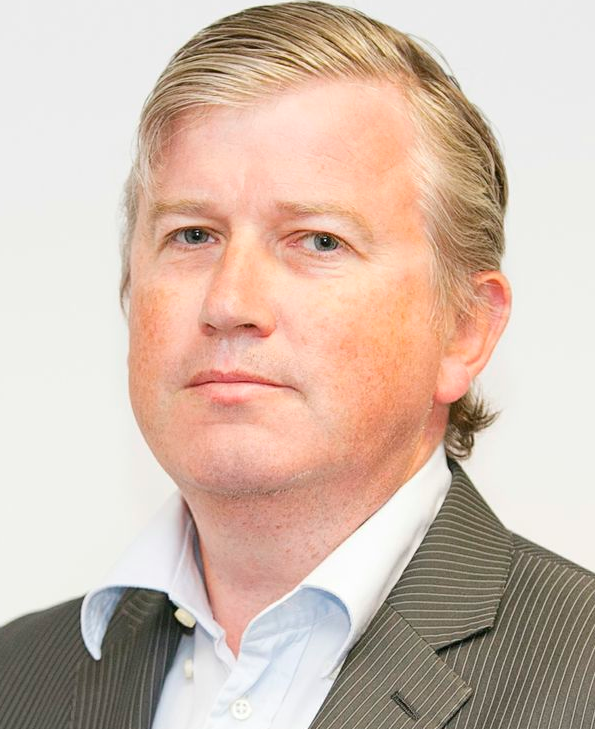ORCHESTRA’s network is growing
– The Irish Cohort
ORCHESTRA is an international project about cohort research on COVID-19. The larger the patient number in the cohorts, the greater becomes the chance of creating a wide clinical picture of the disease. This is why ORCHESTRA is open to collaborate with external cohorts and what motivates external cohorts to join ORCHESTRA. Seamas Donnelly, Professor of Medicine at Trinity College, Dublin, Ireland, took initiative earlier this year. He looked at the website of the European Commission to find out about medical initiatives, found and contacted ORCHESTRA, spread the news within a network of two prominent Dublin hospitals (The St James’s, Tallaght University Hospital, Trinity Alliance for Research – STTAR), joined ORCHESTRA and holds the lead of the Irish Cohort within ORCHESTRA.

What is the Irish Cohort about?
Seamas Donnelly: The Trinity College Dublin COVID bioresource – The STTAR Programme – started about just over 12 months ago and collects longitudinal clinical data (means data collected at recurring medical examinations at different points in time, note by the editor) initially hospital in-patients in the acute setting and more recently those patients suffering prolonged disabling symptoms – the Long COVID Syndrome. To date we have enrolled and are following up circa 1300 patients.
What does the scientific work in cohort research look like? How would you summarise it for friends from a non-medical background?
Seamas Donnelly: We take the longitudinal clinical data of our patients and align them with our collected biological data sets (genetics, methylation, RNA, etc.) and interrogate them to answer basic questions about COVID-19 infection. These would include:
- Why do people get COVID infections?
- Why are some people more vulnerable to severe infections?
- Why are, in particular young females, more vulnerable to the Long-COVID syndrome?
What do you think will be the benefit of working with Orchestra?
Seamas Donnelly: Under the broad clinical diagnosis of the Long-COVID Syndrome – there will be a multitude of different drivers of disease at the cellular level. There will be specific drivers for disease in one individual but potentially a different driver of disease in another. To precisely dissect out the specifics of what drives the disease in an individual – one need substantive numbers of patients to be studied. ORCHESTRA delivers not only this, but also the significant scientific expertise that will make sense of all the data collected to deliver novel insights and therapies for current and future viral diseases.
What have been the greatest challenges within your cohort research in Ireland?
Seamas Donnelly: In Ireland and globally the natural focus has been on the prevention and treatment of the acute COVID infection. The “elephant in the room” and probably the greatest public health challenge of our lifetime will be the care of individuals suffering from the Long-COVID Syndrome. It is estimated that 1:10 patients who suffer acute COVID infections are at significant risk of developing Long-COVID Syndrome. That’s a big-ticket item – and we need as a matter of urgency significant investment in scientific research of this syndrome which will then inform the design of clinical care pathways that can manage the number of patients and the complexity of their syndrome.
In the context of patients suffering from the Long-COVID Syndrome- we do not, as of yet, have proven therapies. What can you do as a clinician to help them?
Seamas Donnelly: Patients who initially present to our Long-COVID clinical services for the first time are often young, intensely fatigued, frightened – and at the back of their minds they are thinking: Is this what life is to be like for me from now on? There are two characteristic clusters of symptoms – brain related and shortness of breath with or without palpitations/chest pain. Initially we give patients time and comprehensively investigate for end organ injury. For the majority of patients we are able to reassure them that investigations show that their Lungs/Heart/Kidney etc are working well. Our clinical psychology team then listen and advice on individual coping exercises that limit their profound feelings of despair and overwhelming anxiety/depression etc.
Do you expect your learnings from COVID-19 and Long-COVID to have a significance for the understanding of other viral diseases?
Seamas Donnelly: Yes, the lessons learned in relation to Long-COVID will significantly help with regards to prevention and treatment of future viral epidemics. In addition, the knowledge gained may also be relevant to the significant number of patients historically, who have been suffering from Chronic Fatigue Syndrome.
The last question for today: Many scientists work overtime, right now, and I suppose that you are one of them. What keeps you motivated to do so?
Seamas Donnelly: Bringing together my two passions – the clinical care of patients with blue-sky research – marrying these two together which allows us ultimately to make important discoveries in diseases such as COVID – for the the benefit of our patients – that’s what gets me up in the morning with a smile on my face.
Seamas Donnelly, Professor of Medicine, Discipline Head, Clinical Medicine, Trinity College Dublin, Ireland. Lead of The Irish Cohort¸ ORCHESTRA Work Package2
Interview by Marlene Nunnendorf, ORCHESTRA Communication